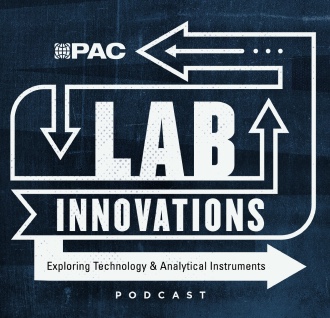Oct-2023
A bio-based solution for producing renewable ethylene
Atol utilises a unique catalyst and an innovative energy recovery system to produce cost-effective bio-ethylene from renewable sources.
Jorge Martinez-Gacio and Yvon Bernard
Axens
Viewed : 3322
Article Summary
Ethylene is one of the world’s most important olefin intermediates in the petrochemical industry and is widely used in the production of plastics and other chemical derivatives. These are used in numerous applications and have countless practical uses in our society (AFPM, 2017). However, its production still relies essentially on fossil feedstocks and energy-intensive steam crackers. Atol, a technology developed in a collaboration between Axens, IFP Energies nouvelles (IFPEN), and TotalEnergies, utilises a unique catalyst and energy recovery system to produce cost-effective bio-ethylene from renewable sources, bringing competitive prospects to decarbonise the industry.
Ethylene: an omnipresent molecule in modern life
Used to produce everything from plastic bottles, packaging, and fibres to cleaning products, surfactants and cosmetics, ethylene is one of the most prevalent molecules in today’s industrial economy. As an intermediate chemical, it is the basis for many of the compounds that make up the products we use in our daily lives:
λ Polyethylene (PE), used to make packaging films and containers
λ Polyethylene terephthalate (PET), used to make various textile fibres and plastic bottles
λ Polyvinyl chloride (PVC), used to make piping and home fixtures
λ Ethylene oxide (EO), used to make cleaning products, antifreeze, pesticides and polyurethane foams. It is, therefore, crucial to find reliable ways to produce and transform renewable ethylene in order to decarbonise this industry.
Ethylene production in an era of decarbonisation
The traditional process of producing ethylene from steam cracker plants has relied primarily on fossil fuels, such as naphtha or natural gas. To comply with new governmental regulations aimed at reducing carbon emissions and respond to society’s rising demands for more sustainable or low-carbon products, industries manufacturing plastics and chemicals will need to find innovative pathways for responsibly producing the ethylene required for their activities.
To this end, several bio-based alternatives to fossil feedstocks are currently available to reduce the carbon footprint of the ethylene industry, though many present their own challenges.
One route for overcoming these issues has been paved by the French technology provider Axens, which offers solutions for the conversion of oil and biomass to cleaner fuels and chemicals. Together with TotalEnergies and IFPEN, the company has developed Atol, a technology for producing polymer-grade, bio-based ethylene through the dehydration of a wide range of bio-ethanol feedstocks, including agricultural or forestry residues, thereby reducing our reliance on fossil fuels and non-renewable resources.
The process converts bio-ethanol into its olefin partner, bio-ethylene, which is chemically indistinguishable from fossil-based ethylene. This means that the bio-ethylene has the potential to replace fossil-based ethylene partially or totally in the full range of existing downstream industrial assets. The reutilisation of existing infrastructure improves the overall economic viability of the technology. Atol bio-ethylene can therefore be fed into existing or new units for PE, EO, ethylene glycol, PET, polyolefins, alpha-olefins for linear alkylbenzene and poly-alpha-olefins, benzene alkylation for polystyrene or acrylonitrile-butadiene. It thus enables a solution to decarbonise industries that rely on these chemical intermediates.
Developed through industrial collaboration
The partnership between TotalEnergies, IFPEN, and its affiliate Axens began in 2011, following a strategic decision taken in the 2000s by Axens and IFPEN to move into the alcohols sector. Atol benefits from each partner bringing mutually compatible skills to the table. TotalEnergies developed a high-performance catalyst formulation at its research centre in Feluy, Belgium, and has considerable experience in cracker operations, including ethylene purification. IFPEN brought its extensive know-how in scale-up, modelling, and heat recovery strategy, while Axens industrialised the catalyst formulation and finalised the process with a particular focus on energy efficiency. While TotalEnergies and IFPEN are the co-owners of the technology, Axens is the sole entity responsible for commercialising Atol, providing all licensing services (basic engineering package, training, technical assistance, digitalisation with remote monitoring) and catalyst manufacturing so end customers and investors can benefit from end-to-end guarantees.
The Atol alcohol dehydration programme has led to a family of processes with the clear ambition of bringing bio-olefins production to scale, unlocking the potential of alcohols for biofuel and biochemical applications. This strategy clearly anticipated the challenges that would arise in terms of climate change after the Paris Agreement signature in 2015.
Catalyst offers optimal performance and energy management
Atol offers a simple and easy-to-operate process with conventional equipment. At the core of the technology is a unique catalyst that pushes the performance of the process beyond the boundaries of classical dehydration processes: it features much higher resistance to impurities typically associated with bio-ethanol. It is fully regenerable and can be regenerated online. On top of that, the catalyst can accept very high water contents in the feedstock, including ethanol coming straight from primary distillation. This translates into an enhanced flexibility that makes it possible to convert a wide range of ethanol feedstocks that are not compatible with traditional dehydration processes.
The catalyst delivers high ethylene yields with excellent selectivity and minimal side reactions. This translates into fewer low-value by-products, positively impacting the operating expenditure related to ethylene purification.
The catalyst is used in a process set-up that enables an innovative energy recovery system to minimise production costs and further improve the economic performance of the plant. The technology, therefore, provides a promising opportunity for investors looking for an attractive business case.
In a nutshell, the combination between the catalyst and process allows Atol to provide three key benefits: improved versatility in terms of compatible ethanol feedstocks, increased yields through enhanced selectivity, and energy efficiency by heat recovery.
Sponsor:
Add your rating:
Current Rating: 4

















